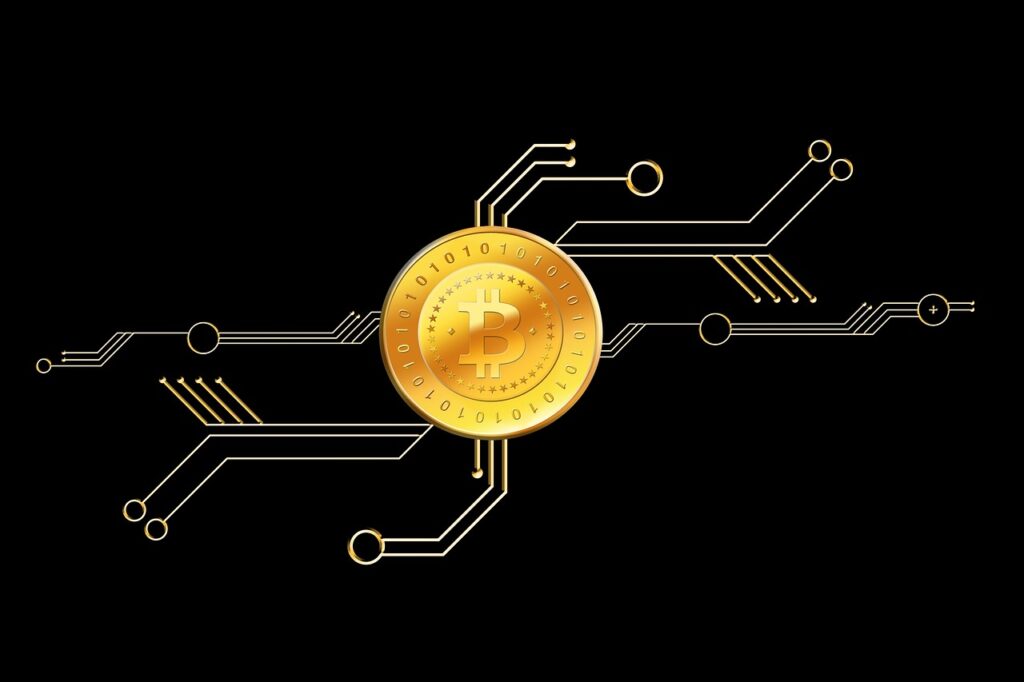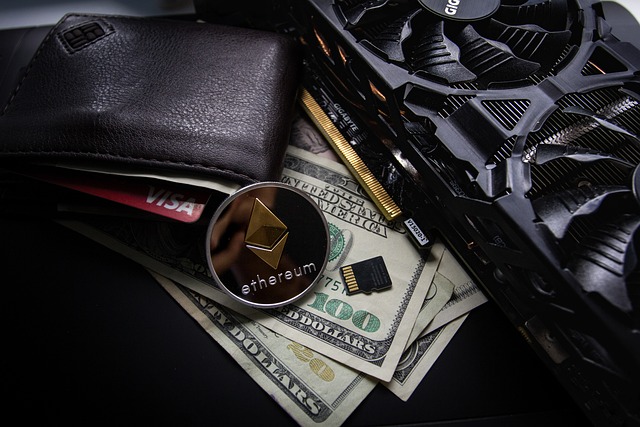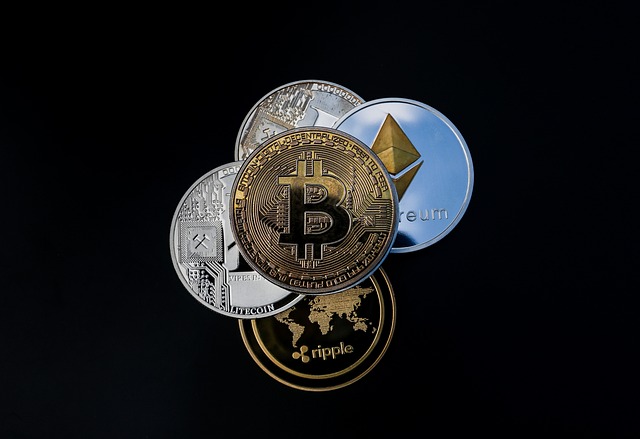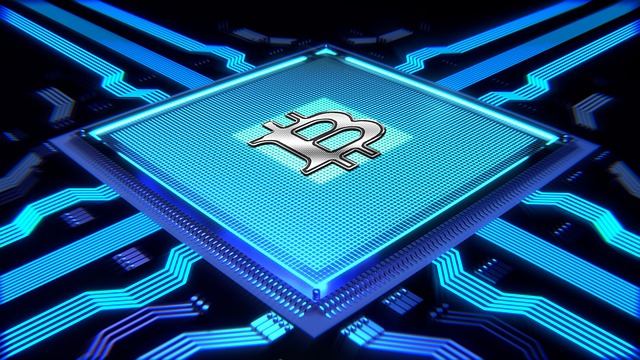DeFi’s Double-Edged Sword: Pros and Cons for Investors
DeFi’s Double-Edged Sword: Pros and Cons for Investors

The Rise of Decentralized Finance: A Game-Changer for Investors
Decentralized finance, or DeFi, has emerged as a groundbreaking phenomenon in the world of investment. By leveraging blockchain technology, DeFi offers a new approach that challenges traditional centralized financial systems. This decentralized nature eliminates the need for intermediaries, such as banks or brokers, and allows individuals to directly engage in financial activities. As a result, investors are empowered with greater control over their assets and the ability to participate in a wide range of innovative opportunities.
Unlike traditional investment avenues, DeFi offers investors the potential for high returns. With its open and inclusive nature, decentralized finance has created a fertile ground for innovation, spawning a multitude of platforms and protocols. These platforms enable investors to lend, borrow, trade, and stake their assets, often yielding attractive yields. DeFi also presents numerous avenues for liquidity mining, yield farming, and yield aggregator strategies. As more financial products and services are built on decentralized networks, the potential for generating substantial returns continues to grow. However, it’s important to note that these opportunities come with a fair share of risks and volatility, which should be carefully considered by investors.
Opportunities for High Returns: Exploring DeFi’s Potential Gains
Decentralized Finance (DeFi) has emerged as a promising avenue with opportunities for high returns. With its innovative technology and decentralized nature, DeFi offers investors a wide range of potential gains. One of the main attractions of DeFi is its ability to provide accessible and efficient financial services without the need for intermediaries. This cuts down on costs and opens up possibilities for higher returns.
In traditional finance, investors often face limited options, barriers to entry, and high fees. However, DeFi introduces a new paradigm where anyone can participate and unlock investment opportunities. Crypto lending and borrowing platforms, for example, allow individuals to lend their assets and earn interest. This provides an avenue for passive income generation and the potential for attractive returns. Additionally, DeFi opens up avenues for yield farming, where investors can maximize their returns by strategically leveraging different platforms and protocols to earn additional tokens or rewards. By exploring the potential gains offered by DeFi, investors can harness the power of this emerging field and capitalize on unique opportunities in the financial landscape.
Volatility and Risk: Understanding the Downsides of DeFi Investments
When it comes to decentralized finance (DeFi) investments, volatility and risk are two downsides that cannot be ignored. Unlike traditional financial markets, which are regulated and offer some level of stability, DeFi investments are subject to higher levels of volatility. This means that the value of your investments can fluctuate significantly within a short period of time.
One of the main reasons for this volatility is the nascent nature of the DeFi ecosystem. While it has gained considerable attention and popularity in recent years, it is still in its early stages of development. As a result, the market is relatively small and lacks the same level of liquidity as traditional financial markets. This lack of liquidity can result in sharp price movements, making DeFi investments more unpredictable and risky. Additionally, the absence of centralized institutions and regulations in the DeFi space adds to the overall risk, as there is a higher potential for scams and fraudulent activities.
The Power of Smart Contracts: Simplifying Transactions and Reducing Costs
Smart contracts have been a game-changer in the world of finance, revolutionizing the way transactions are conducted. These automated contracts eliminate the need for intermediaries, such as banks or lawyers, streamlining the process and reducing costs. By utilizing blockchain technology, smart contracts enable parties to enter into agreements without relying on trust, as the terms are coded into the contract and executed automatically. This not only simplifies transactions but also removes the possibility of human error, ensuring accuracy and efficiency.
Moreover, the cost-saving benefits of smart contracts cannot be overstated. By eliminating the need for intermediaries, transaction fees are significantly reduced, making it more affordable for individuals and businesses alike. Additionally, the automated nature of smart contracts reduces the need for manual paperwork, saving time and resources. Whether it’s in supply chain management, insurance claims, or real estate transactions, smart contracts have the potential to streamline processes and reduce costs across various industries. As this technology continues to evolve, its impact on simplifying transactions and reducing costs is set to become even more profound.
• Smart contracts eliminate the need for intermediaries, such as banks or lawyers
• Transactions are streamlined and costs reduced
• Trust is not required as terms are coded into the contract and executed automatically
• Human error is eliminated, ensuring accuracy and efficiency
• Transaction fees are significantly reduced by eliminating intermediaries
• Manual paperwork is minimized, saving time and resources
• Smart contracts have the potential to streamline processes and reduce costs in supply chain management, insurance claims, real estate transactions, etc.
• As smart contract technology evolves, its impact on simplifying transactions and reducing costs will become even more profound.
Security Concerns: Mitigating the Risks of DeFi Platforms
Decentralized finance (DeFi) has gained significant traction in recent years, revolutionizing the way financial transactions are conducted. However, with its rapid growth and increasing popularity, security concerns have emerged as a critical challenge that needs to be addressed. While DeFi platforms offer new opportunities for investors, they also expose them to potential risks that must be mitigated.
One of the primary security concerns in DeFi platforms is smart contract vulnerabilities. Smart contracts are autonomous pieces of code that execute transactions automatically according to predefined rules. However, if these contracts are not properly audited and tested, they can be susceptible to bugs and loopholes that can be exploited by hackers. Consequently, investors must exercise caution and conduct thorough due diligence before engaging with any DeFi project. It is imperative to carefully assess the security measures implemented by the platform, such as multi-signature wallets, audits by reputable firms, and secure coding practices. Moreover, investors should diversify their holdings and avoid putting all their eggs in one basket, as this can reduce the potential impact of security breaches and protect their investments.
Liquidity and Accessibility: How DeFi Opens Doors for Investors
Decentralized Finance (DeFi) is transforming traditional financial systems and democratizing access to investment opportunities. One of the key benefits of DeFi is its ability to provide liquidity and accessibility to investors like never before. Unlike traditional financial institutions that often limit access based on wealth or location, DeFi platforms operate on blockchain technology, allowing anyone with an internet connection to participate in the financial ecosystem.
Liquidity is the lifeblood of any investment market, and DeFi excels in this area. By eliminating intermediaries and using smart contracts to automate transactions, DeFi platforms enable instant and frictionless trading. Investors can easily buy, sell, or exchange digital assets without going through costly and time-consuming processes. This high level of liquidity not only allows investors to react quickly to market opportunities but also ensures that their investments have a ready market, increasing the efficiency and effectiveness of their investment strategies. Additionally, DeFi platforms provide access to a wide range of financial products such as loans, synthetic assets, and yield farming, further increasing the investment options available to individuals across the globe.
Regulatory Challenges: Navigating the Legal Landscape of Decentralized Finance
Regulatory challenges have become a prominent concern in the rapidly expanding field of decentralized finance (DeFi). As this new financial ecosystem continues to gain traction, governments around the world are grappling with how to effectively regulate and monitor these decentralized platforms. The decentralized nature of DeFi poses unique challenges for regulators, as there is no central authority or governing body to oversee transactions and enforce compliance. This lack of centralized control, while attractive to many investors, also raises questions about investor protection, money laundering, and market manipulation.
In order to navigate the legal landscape of DeFi, regulators face the daunting task of striking a balance between innovation and oversight. On one hand, embracing decentralized finance can foster financial inclusivity, increase access to capital, and promote economic growth.

The Role of Decentralized Exchanges: Revolutionizing Trading Practices
Decentralized exchanges (DEXs) have emerged as a force to be reckoned with in the trading world. Unlike traditional centralized exchanges, DEXs operate on a peer-to-peer basis, allowing users to trade directly with each other without the need for intermediaries. This not only eliminates the need for third-party custodians, but also significantly reduces transaction costs and increases transaction speed. With DEXs, traders have complete control over their assets, ensuring a higher level of security and privacy. Furthermore, the decentralized nature of these exchanges makes them resistant to censorship and manipulation, providing a level playing field for all participants.
The revolutionizing aspect of decentralized exchanges lies in their ability to offer a wide range of assets for trading.

Diversification and Portfolio Management: Incorporating DeFi into Investment Strategies
Incorporating decentralized finance (DeFi) into investment strategies can offer investors a unique opportunity for diversification and portfolio management. By adding DeFi assets to their portfolios, investors can potentially reduce the overall risk and increase potential returns.
One way to diversify with DeFi is by investing in multiple decentralized platforms and tokens. Unlike traditional finance, DeFi enables investors to access a wide range of assets, such as cryptocurrencies, lending/borrowing protocols, and decentralized exchanges. By allocating funds across different DeFi projects, investors can spread their risk and mitigate the impact of any potential losses. Additionally, incorporating DeFi assets in a portfolio can provide exposure to innovative technologies and sectors that may have higher growth potential compared to traditional investments.
Building Trust and Transparency: Ensuring a Sustainable Future for DeFi
Decentralized Finance (DeFi) has gained significant traction in recent years, revolutionizing the way financial transactions are conducted. While the potential for high returns and the opportunities for investors are undeniable, building trust and transparency is crucial for ensuring a sustainable future for DeFi.
One of the key advantages of DeFi lies in its ability to operate on smart contracts.

What is DeFi and how does it work?
DeFi stands for decentralized finance, which is a system that allows financial transactions and services to be conducted without the need for intermediaries like banks. It utilizes blockchain technology and smart contracts to enable secure and transparent transactions.
Is DeFi a safe investment option?
While DeFi offers exciting opportunities for high returns, it also comes with risks. Due to the volatile nature of cryptocurrencies and the potential for security breaches, it’s important to be cautious and do thorough research before investing.
What are the benefits of using smart contracts in DeFi?
Smart contracts automate and execute transactions based on predefined conditions, eliminating the need for intermediaries. This not only reduces costs but also increases efficiency and transparency in financial transactions.
How can security concerns in DeFi be addressed?
Security in DeFi can be improved through thorough auditing of smart contracts, implementing multi-factor authentication, and using secure wallet solutions. It’s important for investors to choose reputable platforms and stay updated on security best practices.
How does DeFi improve liquidity and accessibility for investors?
DeFi platforms allow investors to participate in a wide range of financial activities, such as lending, borrowing, and trading, without the need for traditional financial institutions. This opens up opportunities for individuals who may not have had access to these services before.
What are the regulatory challenges facing DeFi?
DeFi operates in a relatively unregulated space, which can present challenges in terms of legal compliance and consumer protection. As the industry continues to grow, regulators are working to establish frameworks to ensure the safety and integrity of DeFi platforms.
What role do decentralized exchanges play in DeFi?
Decentralized exchanges enable peer-to-peer trading without relying on a central authority. This revolutionizes traditional trading practices by allowing users to have full control over their assets and eliminating the need for intermediaries.
How can investors incorporate DeFi into their investment strategies?
Diversification is key when incorporating DeFi into investment strategies. Investors can allocate a portion of their portfolio to DeFi projects, balancing the risks and potential returns with more traditional investments.
How can trust and transparency be ensured for the sustainable future of DeFi?
To ensure a sustainable future for DeFi, platforms need to prioritize transparency, provide clear information about risks and rewards, and establish strong security measures. Trust can be built through audits, open-source development, and community involvement in decision-making processes.
Todays Featured Product:
Buy, exchange and grow your crypto securely with a Ledger hardware wallet, combined with the Ledger Live app. It’s never been easier to keep your crypto safe and accessible. Buy direct from Ledger.com and get todays Special Offers Here.




